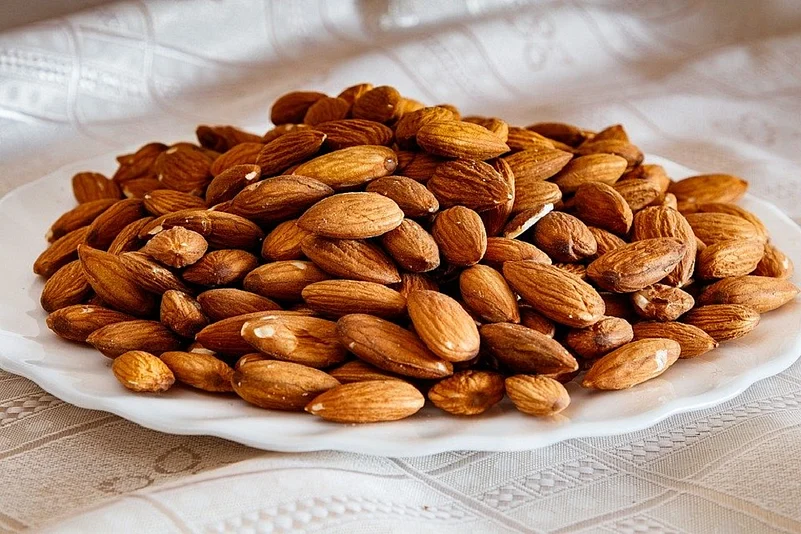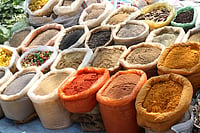fter months of uncertainty due to the pandemic-induced lockdown, the new dates for Board Exams, JEE and NEET have finally been announced. Students who had lost touch with their syllabus and curriculum despite various versions of online classes are now worried about the looming slew of examinations. How does one bring back the focus? Is there a way to ensure retention of what we study? How can we bring back the mental discipline and rigour needed to catch up on time lost?
Surprisingly, the answers to all those questions are related to our food habits. What we eat and drink significantly affects our behaviour and activity. In turn, our mood and emotional state affects what we consume. Therefore, our food and our mood are strongly interdependent.
The human brain is a very complex organ. It is the central processing unit of our body. Since it works without a break to keep us going, it must be constantly fuelled with energy. This energy
comes from what we eat and drink to nourish our body. Nutrients present in food affects our brain and its functioning. And some foods are obviously better for our brain than others. Here’s a few.
Also Read| Nutrition Tips To Promote Thyroid Health
Whole grains: Our brain uses only glucose as a source of energy. Whole grains are a source of healthy carbs and dietary fiber. They also have a low glycemic index (a relative ranking of
carbohydrate in foods according to how they affect blood glucose levels) and thus release glucose slowly into the bloodstream. This helps keep us mentally alert throughout the day. Opt for whole wheat chapati, brown bread, brown rice, and millets.
Green leafy vegetables: Leafy greens such as spinach, amaranthus, fenugreek, cabbage, and broccoli, are rich in brain nutrients such as vitamin K, iron, ascorbic acid, magnesium, folate, beta carotene, and lutein. Various studies have shown positive effects of leafy vegetables on cognitive function. We can eat them as bhaji, stuffed paranthas, dal palak and salads. Remember not to overcooks them.
Almonds: Almonds are always recommended as brain food. They are a rich source of protein, vitamin E, B vitamins, calcium, magnesium, potassium, mono- and poly-unsaturated fatty acids. Almonds enhance memory function and prevents cognitive decline. It is safe to consume five to seven soaked almonds daily, or as a shake.
Oily Fish: Oily fish are a rich source of omega-3 fatty acids like EPA and DHA. These healthy fats play a significant role in brain development, relieving stress and preventing memory loss. Apart from healthy fats, fish is also a rich source of complete proteins. Rohu, Hilsa, Rawas, Katla, Rani, and Paplet are some of the oily fishes commonly available in Indian fish markets.
Tea and Coffee: Caffeine is a central nervous system stimulant present in tea and coffee. After drinking tea or coffee, we feel more awake and less tired. They also help to relieve mental
fatigue. There is evidence that shows increased alertness and mood enhancement after caffeine consumption. However, drinking too much tea and coffee is not good for health. Moderate consumption, three to four cups per day, is safe for most people.
Dark Chocolates: These somewhat bitter chocolates have a higher concentration of cocoa as compared to other chocolates. Cocoa is rich in flavonoids and this phytochemical is responsible for boosting cognitive performance. Cocoa also contains caffeine, which increases mental alertness. Before purchasing, check the percentage of the cocoa mentioned in the wrapper. Take small bites of the chocolate while studying and boost your focus and concentration.
Water: Water is incredibly important for brain health. The largest component of the human body, it flows in the body in the form of blood, transmits oxygen and nutrients and helps flush out waste products. It als fills the spaces between the cells. Dehydration disturbs the brain balance and results in delayed reactions, mood swings, and headaches. Thus, staying hydrated is important for brain health.
(The author is a Ph.D. scholar (Human Nutrition) in the Department of Food and Nutrition, G.B. Pant University of Agriculture & Technology, Uttarakhand)




















.png?w=200&auto=format%2Ccompress&fit=max)




